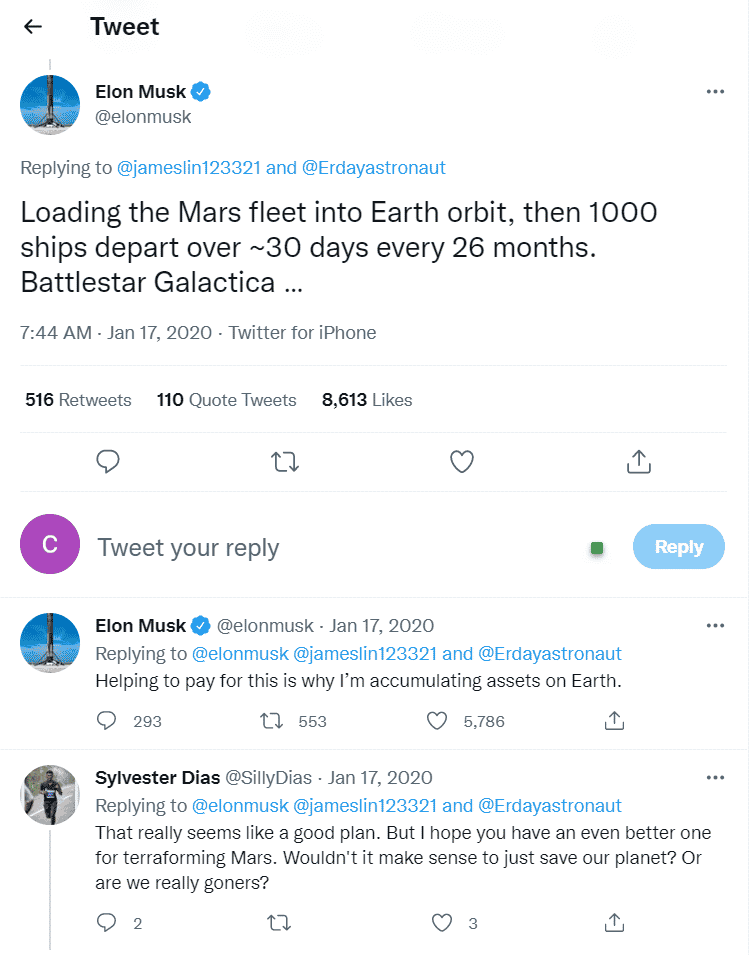Societies might one day be found on the fourth planet from the Sun. The problem I have with Musk’s plan is the ridiculously short time frame he expects it would take to implement it. When asked about his proposal to deploy one million people to Mars in around thirty years in a conversation with TED organizer Chris Anderson a couple of months back the millionaire kept a poker expression while rehashing the details of the proposal.
Musk described a titanic endeavor, reminiscent of Battlestar Galactica, to deliver huge numbers of people to Mars using a 1,000 SpaceX Starship spacecraft to a presumably receptive Anderson. In 2020, Musk tweeted a proposal to construct 100 Starships every 12 months for a decade. His ambition is still matched with that goal.
Elon’s Plan
Cohorts of Starships will embark on a long journey to the Red Planet Mars every 26 months within certain 30-day periods, with every cohort leaving in turn( Spacecraft will be sent at intervals to avail benefit of conjunction between Earth and Mars). Musk estimates that if he can achieve a launching tempo of six flights per year by 2028, he could have a million people living on Mars in about 22 years.
In the eyes of Elon Musk, one million people isn’t simply a target or prediction—it’s needed for establishing a settlement on Mars. For him, “the important barrier is if the spaceships from Earth cease arriving for whatever cause,” which might determine the destiny of Mars’ settlement and eventually mankind altogether. When it comes to colonizing Mars and making the switch to becoming an interplanetary civilization, Musk claims to be motivated by altruism. Because the “likely lifetime of cultural and moral awareness as we know it” is like a “tiny light amid a vast darkness” in the cosmos, a “sensitive” light, he believes it is crucial for maximizing human longevity or awareness.
No matter how many people are sent to Mars by SpaceX in such a brief span of time, there’ll be a huge lot of obstacles to surmount. To begin with, there’s the human component to take into account. Due to our flesh suits’ design, we cannot go into orbit or too dangerous extraterrestrial planets in them. Despite its scant environment, cold weather, as well as the non-existent magnetosphere, the fourth planet in the solar system provides no air to inhale and no fresh water to quench mankind’s thirst.
